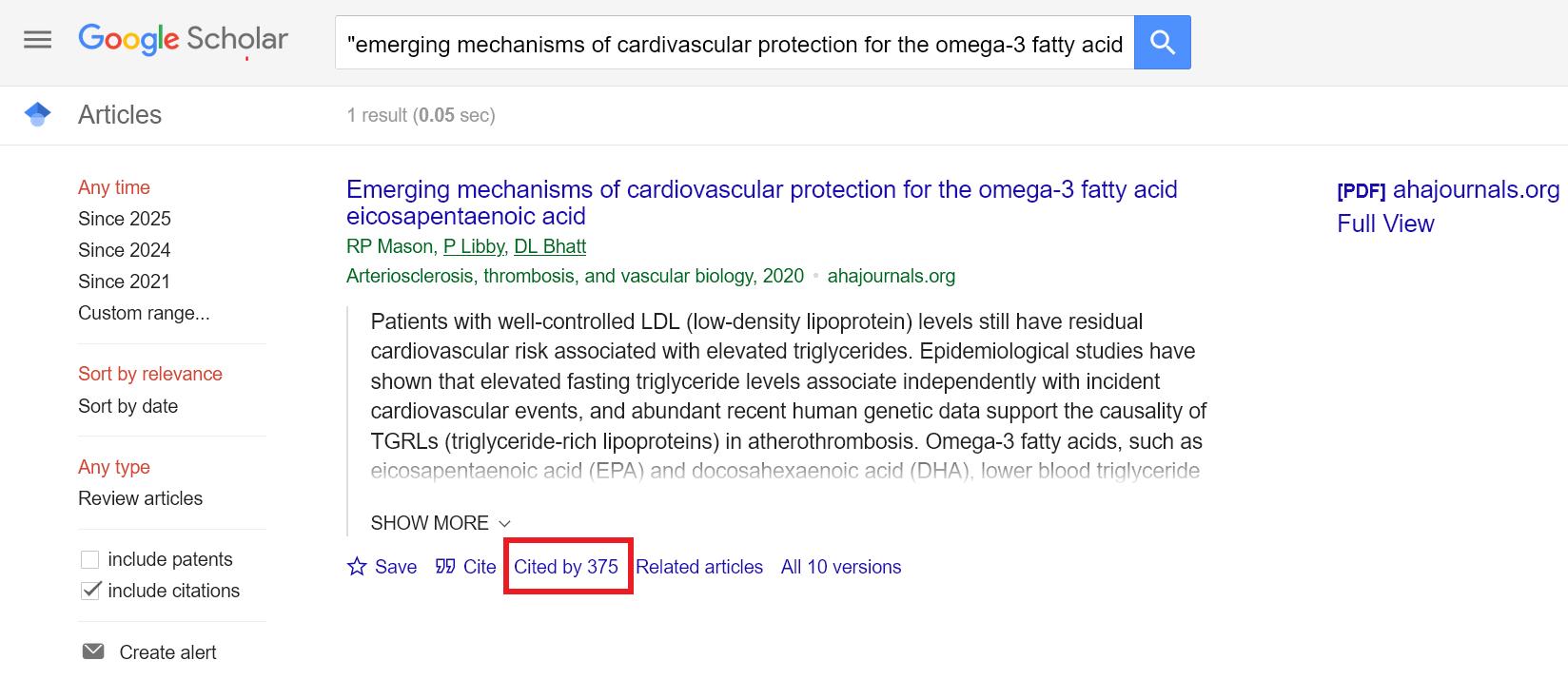
Citation searching (AKA snowballing, chaining, chasing etc.) is a supplementary searching technique that can be used to find other relevant studies that may have been missed through database searching alone. It can also be used to explore the connections between scholarly works.
The Cochrane Handbook says that "searching reference lists is mandatory; reference lists in included studies and any identified relevant systematic reviews should be checked" (Cochrane Handbook, 4.3.5.)
JBI Scoping Reviews has a similar statement: "the reference list of identified reports and articles should be searched for additional sources. This third stage may examine the reference lists of all identified sources or examine solely the reference lists of the sources that have been selected from full-text and/or included in the review" (JBI Scoping Review 10.2.5)
Forward citation searching
Assists in finding newer articles that cite your seed article, looking forward in time to see who has cited them.
Backward citation searching
This approach takes a seed article and looks backwards in time to see which references the authors have cited themselves
Hand searching
This approach involves, as the name suggests, manually examining the entire contents of a journal issue to further identify eligible studies.
If you have a university affiliation we suggest using the following subscription based tools for citation analysis:
Google Scholar is a freely available alternative for forward citation searching.
1. Search for an article title in Google Scholar, recommend using double quotation marks around the title
2. Under the search results, Look for the 'Cited by' link (see image)
3. Click on this link to explore other papers that cite your seed or starting reference.

The following tools can be used for citation searching. If you use any of these tools in your review you'll need to cite them and describe the approach taken in your search methods - refer to PRISMA guidelines for guidance.
The following tools each have their pros and cons. This is not intended as an exhaustive list.
The following papers are worth reading about citation searching and how to report this aspect in the context of reviews.
Our colleagues at Monash Health Library have created a handy AI matrix to help determine which tool to use and for what purpose.